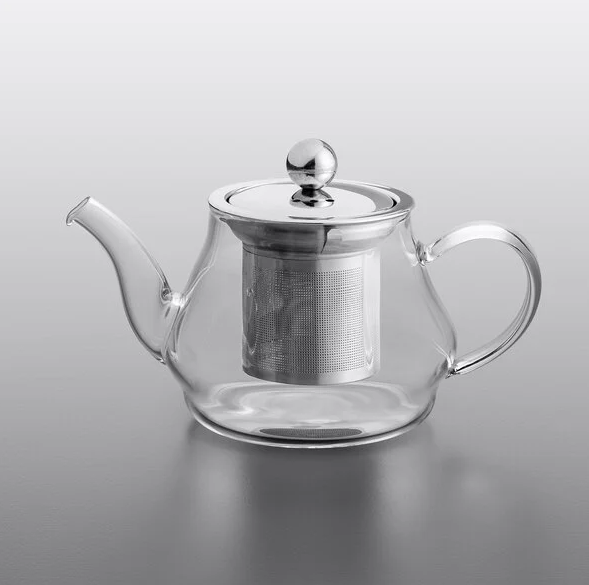Mushroom Tea Guide
This post may contain affiliate links. Simple Loose Leaf is a participant in the Amazon Associates Program, an affiliate advertising program designed to provide a means for sites to earn advertising fees by linking to Amazon.com. Are you on a mission to try every possible tea in the world? Or you feel attracted to trying the most unique types? Maybe you are looking for specific health benefits? No matter the reason, mushroom tea may be just the most unusual and incredible tea infusion you will ever try. Read more about mushroom tea and find out what are the most common types used for making infusions.
What is mushroom tea?
Mushroom tea is an infusion made by steeping mushrooms or mushroom powder in water. It can be made from different mushrooms and in different ways. Mushroom teas are made by infusing dried mushrooms in hot water or dissolving a mushroom powder in water or other tea. Mushrooms are popular in traditional medicines where they are used for treating cancers[1], promoting mental health[2] including relieving stress and anxiety[3] and improving digestion[4]. Some mushrooms are considered adaptogenic and may help naturally relieve different types of stress. These mushrooms are maitake (Grifola frondosa), shiitake (Lentinula edodes), and reishi (Ganoderma lucidum)[5]. Today, some mushroom powders are added to herbal tea blends and are available even in tea bags.Mushroom Tea Types
Although theoretically, you can make an infusion using any type of edible dry or fresh mushrooms, only specific types are used for making tea and they all have medicinal properties. It’s believed that out of 2000 edible mushrooms, 270 may have potential health benefits[6]. The main purpose of infusing dried mushrooms in hot water or taking mushroom extract is usually not to enjoy the flavor, but potential health benefits instead. The most popular ones are:1. Chaga mushrooms
Chaga mushroom or Inonotus obliquus is a type of mushroom that grows on birch trees. May consider this mushroom a superfood and it’s widely available in powdered form. Studies showed that chaga mushrooms may be have anti-bacterial, anti-inflammatory, anti-oxidant, and anti-tumor activities, and may help suppress cancers and aid in weight loss.[7]2. Reishi mushrooms
Reishi mushroom or Ganoderma lucidum is another popular type of mushroom, especially in Chinese medicine where it’s been used for over 2000 years[8]. It may help improve blood pressure and boost immune system[9].3. Maitake mushrooms
Maitake or Grifola frondosa is also an adaptogenic mushroom that is widely available in powdered form. It’s popular in Asia and grows on oak trees where they have been used for hundreds of years. Studies showed that maitake, especially when combined with shiitake mushrooms, may significantly enhance immune system[10]. Furthermore, there may help with treating diabetes and cancer[11].4. Shiitake mushrooms
Shiitake mushrooms or Lentinula edodes are probably the most widely available mushrooms with medicinal properties. They are often available in supermarkets and used for cooking. Shiitake tea can be made with dried mushrooms or mushroom powder. Powders are available in many health stores. Shiitake mushrooms have been used for at least one thousand years. They have antimicrobial properties[12], anticancer and antioxidant properties,[13] and may help prevent caries,[14] boost immune system,[15] and even treat the common cold.[16]5. Lion’s mane mushrooms
Lion’s mane or Hericium erinaceus is a type of white edible mushroom growing on dead and alive trees. These mushrooms are available as supplements too. It’s mostly used for improving cognitive health[17], relieving stress and anxiety, and boosting immune system[18].Caffeine Level
Pure mushroom tea contains zero caffeine. However, mushroom powders are sometimes added to coffee or tea. Some mushrooms may help naturally boost energy levels and when blended into caffeinated drinks they may offer a more powerful energy boosting cup. If you are making an infusion of mushrooms and real tea, such as green tea or black tea, or if you are adding mushroom powder to your coffee, then your cup of tea or coffee will contain caffeine.What does mushroom tea taste like?
Just like mushrooms used for cooking, mushroom tea can have different flavors. Some mushrooms have a stronger flavor, while some may be flavorless. Some may taste more meaty, some may have an earthy flavor, such as chaga mushroom, and some may be slightly bitter. For example, Lion’s mane is more delicate than chaga, and even slightly sweet compared to a slightly bitter chaga tea flavor. Maitake is slightly woody and spicy, similar to reishi mushroom, but sweeter.Potential Health Benefits of Drinking
Drinking mushroom tea may provide many health benefits. The most typical health benefits related to medicinal mushrooms are boosting immune system, improving mental health including age-related diseases and relieving stress and anxiety, and aiding digestion. Studies showed that lion’s mane may provide anti- hyperglycemic properties and may be beneficial for treating diabetes[19]. Furthermore, it may help protect the liver, brain and provide anti-aging and anti-fatigue activity[20]. On the other hand, chaga mushroom may prove to be valuable in cancer treatment[21]s, may help boost immune system, fight inflammations and protect the liver[22].Is kombucha a mushroom tea?
Kombucha, a very popular drink made with kombucha “mushroom” is not a mushroom tea. Scoby, a mushroom-like “sponge” is in fact, a symbiotic growth of bacteria and yeast. Scoby is then added to a mix of sugar and real tea leaves to ferment. Kombucha is always made with sugar, and available only in liquid form.Disclaimer: This article is for informational purposes only. It’s not intended to replace medical advice, diagnosis or treatment. Every person is different and may react to different herbs and teas differently. Never use teas or herbs to treat serious medical conditions on your own. Always seek professional medical advice before choosing home remedies.
References:
[1] https://www.ncbi.nlm.nih.gov/pmc/articles/PMC4946216/ [2] https://www.ncbi.nlm.nih.gov/pmc/articles/PMC3924982/ [3] https://www.ncbi.nlm.nih.gov/pmc/articles/PMC6007659/ [4] https://www.ncbi.nlm.nih.gov/pmc/articles/PMC5618583/ [5] https://www.uspharmacist.com/article/adaptogenic-or-medicinal-mushrooms [6] https://nootropicsexpert.com/the-nootropic-benefits-of-medicinal-mushrooms/ [7] https://www.ncbi.nlm.nih.gov/pmc/articles/PMC4946216/ [8] https://www.uspharmacist.com/article/adaptogenic-or-medicinal-mushrooms [9] https://www.mskcc.org/cancer-care/integrative-medicine/herbs/reishi-mushroom [10] https://www.ncbi.nlm.nih.gov/pmc/articles/PMC4202470/ [11] https://www.researchgate.net/publication/26248013_Maitake_mushroom_Grifola_frondosa_Systematic_review_by_the_natural_standard_research_collaboration [12] https://www.ncbi.nlm.nih.gov/pmc/articles/PMC5214552/ [13] https://www.ncbi.nlm.nih.gov/pmc/articles/PMC4320875/ [14] https://www.ncbi.nlm.nih.gov/pmc/articles/PMC5214552/ [15] https://www.ncbi.nlm.nih.gov/pmc/articles/PMC4202470/ [16] https://www.ncbi.nlm.nih.gov/pmc/articles/PMC4320875/ [17] https://www.ncbi.nlm.nih.gov/pmc/articles/PMC3924982/ [18] https://www.medicalnewstoday.com/articles/323400 [19] https://www.sciencedirect.com/science/article/pii/S2221169117310390 [20] https://www.sciencedirect.com/science/article/pii/S2221169117310390 [21] https://www.ncbi.nlm.nih.gov/pmc/articles/PMC4946216/ [22] https://www.mskcc.org/cancer-care/integrative-medicine/herbs/chaga-mushroom
More from:
SLL



Leave a comment